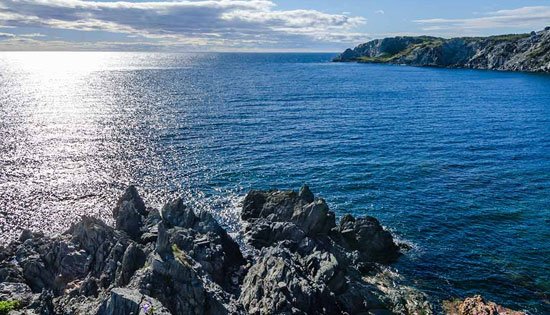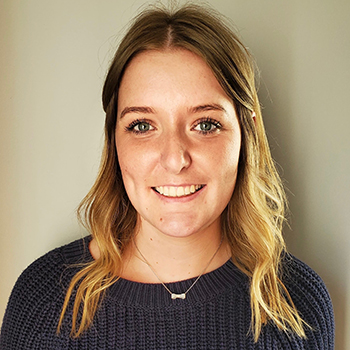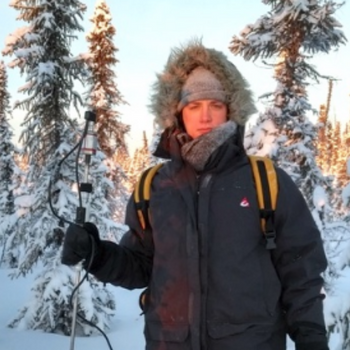Search for academic programs, residence, tours and events and more.
Our Master of Science (MSc) in Geography is a two-year program that is perfect if you want to develop expertise in the science sub-disciplines of Geography with an emphasis on environmental science and geomatics.
We also offer Master of Environmental Studies in Geography and Master of Arts in Geography programs.

Do field research in a variety of physical environments.
Benefit from the breadth and depth of faculty expertise and peers in a rich intellectual environment.
Our program is enhanced by a number of research centres and groups.
This full-time program can be completed in two years. You’ll complete three one-term courses, and write and defend a master’s thesis.
You can explore a range of research interests, including water resources; northern environments; cold regions hydrology; biogeochemical cycling of nutrients; climate change impacts on vegetation, permafrost, snow, lakes and rivers. You’ll gain expertise and skills through a combination of formal coursework, research and teaching assistant positions, field and laboratory experimentation, and independent research leading to the completion of your thesis.
Our program is enhanced by a number of research centres and groups, including:

"Research has given me an outlet for creativity and accomplishment – and being a part of a research group has allowed me to explore my own interests while also collaborating with peers working toward a common goal."
Alicia Pouw, MSc in Geography student
Take the first step in your graduate education and apply to one of our graduate programs. Follow our three-step admission process — we’ll walk you through how to apply and prepare for your first day as a graduate student.
After you have submitted your OUAC application, paid the non-refundable application fee, and Laurier has received your application, you'll receive an email from gradadmissions@wlu.ca advising you to upload the additional required documentation to Laurier’s Online Registration and Information System (LORIS).
Feb. 1 is the deadline to be considered for any scholarships and/or awards. This means your application should be complete (OUAC application completed and supplemental documents submitted) by this date. Please note, the application process and the uploading of supplemental documentation, which includes references, typically takes two weeks. To avoid disappointment, apply early.
An application for admission to our MA/MES/MSc program in Geography must include:
Visit our Graduate Admissions Toolkit for more information about applying.
Proficiency in written and spoken English is essential to graduate studies at Laurier. Applicants whose language of instruction during their previous postsecondary education was not in English must submit evidence of proficiency in English. If applicable, results from accepted testing services must be uploaded to LORIS.
Questions? Contact geoggradprogram@wlu.ca.

"Get ready for an experience you'll always remember. In this program you'll improve your critical thinking, collaborate with professionals on modern projects, progress the scope of research taking place within the Canadian Arctic, and in the sphere of climate change."
Anton Jitnikovitch, 2019 graduate
Regardless of the type of graduate degree program you intend to pursue, financial planning is important. At Laurier, we want to provide you with as much information as possible about a variety of scholarship and funding opportunities and equip you with the skills to manage your finances effectively in the years to come.

MSc in Geography graduates have secured employment as research technicians in academia, resource specialists with government agencies (Yukon Government) and environmental consulting firms and companies (Geomorphic Solutions, EDI Environmental Dynamics, Hoskins).
ASPIRE is Laurier's professional skills development training program for graduate students. The program helps you craft an individualized, extracurricular learning plan tailored to your professional journey and entry to the workplace.
Learn about the interests of our faculty members. If you are looking for more information about this program, have questions, or want to set up a meeting, contact a member of our team./p>
Michael Bitton
Assistant Professor
Joseph Culp
Environment and Climate Change
Canada Research Scientist in Residence
Jason Goetz
Assistant Professor
Homa Kheyrollah Pour
Assistant Professor
Canada Research Chair in Remote Sensing of Environmental Change
Philip Marsh
Professor
Canada Research Chair in Cold Regions Water Science
William L. Quinton
Professor
Laurier Research Professor
Steven Roberts
Associate Professor
Graduate Officer, Geography
Jason Venkiteswaran
Associate Professor
Brent Wolfe
Professor
Associate Vice-President and Dean, Faculty of Graduate and Postdoctoral Studies
Jennifer Baltzer
Associate Professor
Canada Research Chair in Forests and Global Change
Alex Latta
Associate Professor
Think this is the perfect program to continue your education?